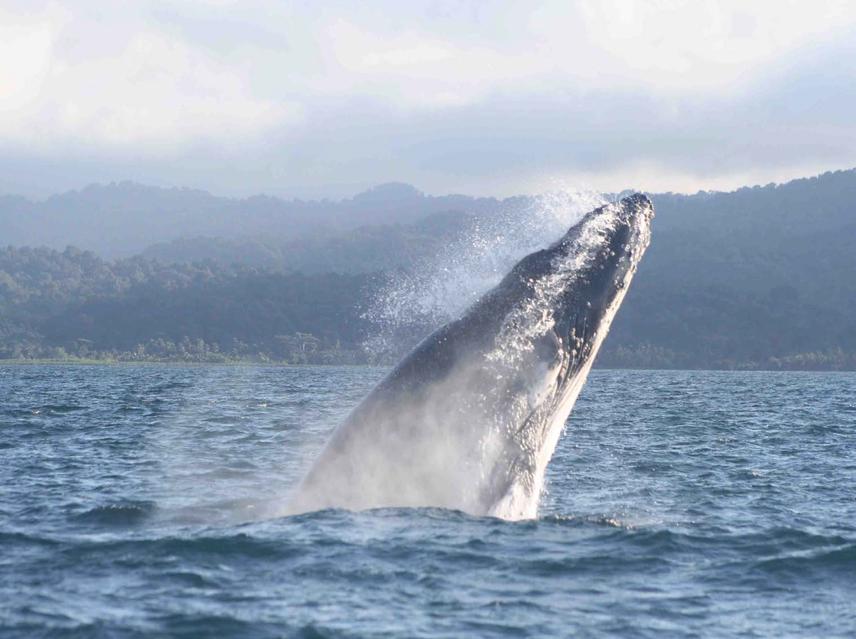Juliana López Marulanda
This project advocates for the integration of scientific research and whale watching tourism to maximize conservation efforts and support the sustainable use of biodiversity in the region

Despite considerable efforts, information gaps regarding marine mammals still persist in many locations of the Colombian Pacific. One of the main factors contributing to this problem is the lack of integration between scientific research and whale watching operators. This is unfortunate, since whale watching is used as a platform for scientific research and environmental education in many localities around the world.
In the Colombian Pacific, the isolated nature of the marine ecosystems greatly increases the costs of boat-based research, making long-term monitoring difficult, which in turn decreases the likelihood of achieving long-lasting conservation benefits. However, the adaptation of whale watching vessels as a platform for conducting scientific surveys and environmental education activities can not only benefit the researchers, but also the local communities and the animals targeted by the tourism industry. While monitoring the behavior and habitat use of humpback whales in Tribugá’s Gulf, Macuáticos Colombia Foundation found some negative impacts of whale watching caused primarily by inappropriate approaching or following maneuvers made by tourist or commercial boats.
To address this issue, our research team intends to form an alliance with the whale watching operators working in Tribugá’s Gulf. We plan to conduct surveys to assess tourism agencies, host workshops, and organize meetings to agree upon collaboration for future seasons. Macuáticos Colombia offers the knowledge and experience of researchers to improve the quality of environmental education occurring in association with the whale watching tourism. In exchange we will have the opportunity to conduct scientific observations during whale watching tours. We will negotiate this mutually beneficial relationship will a greater number of tour-guides, and anticipate that this will greatly reduce our operational expenses. By promoting sustainable tourism practices and overcoming prevailing information gaps, this interface between researchers and tour guides will support the conservation of humpback whales, among other cetacean species inhabiting the study area.